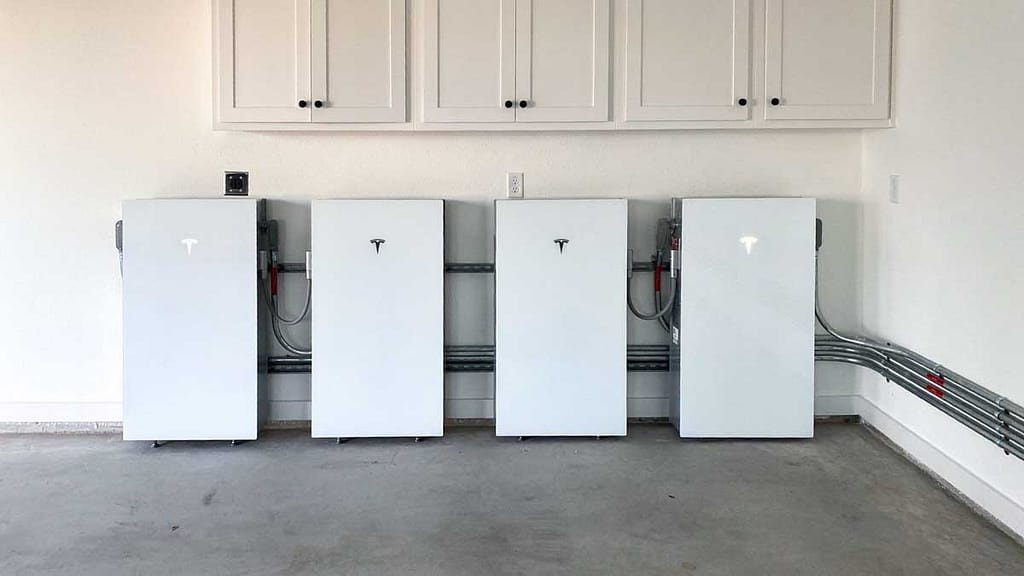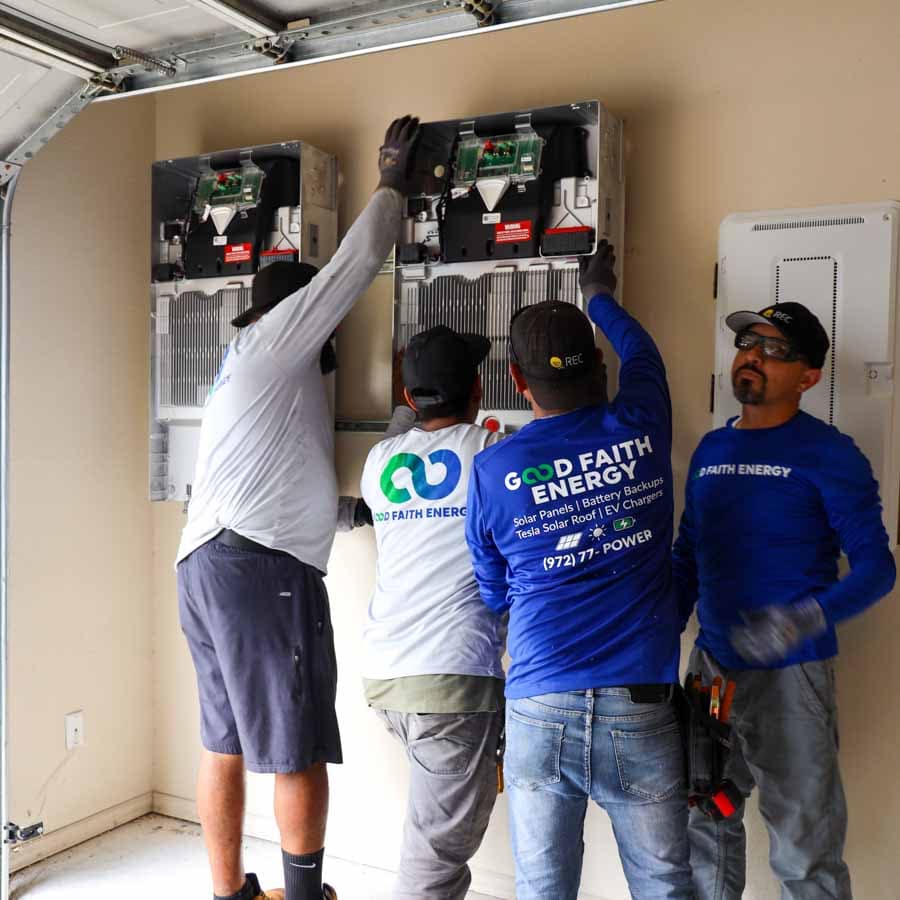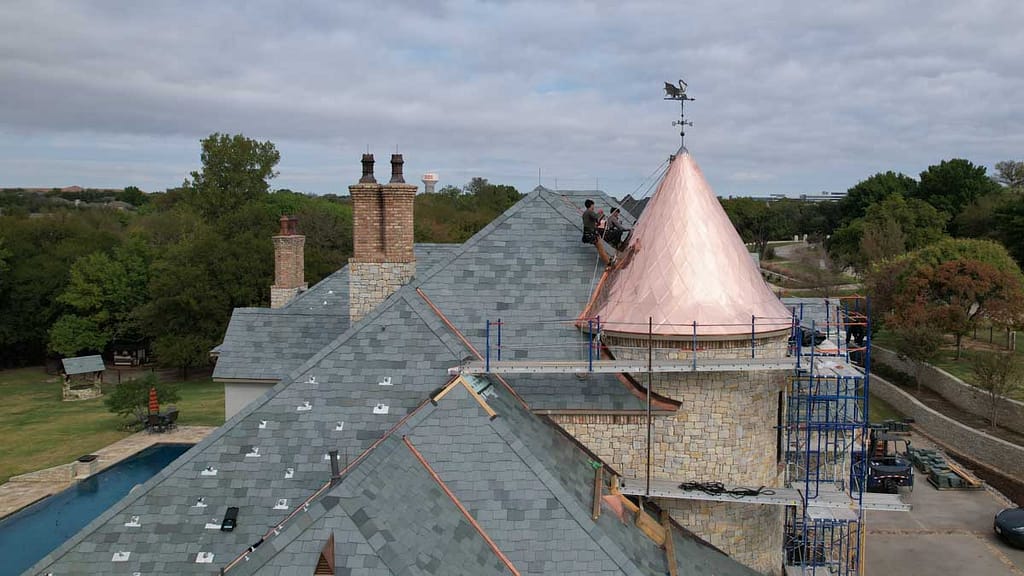Homeowners across Texas are gaining more control over how they install solar panels and battery backup systems, thanks to Senate Bill 1202 and 1252 (SB1202 & SB1252), passed during the 89th Texas Legislative Session. The bill promises faster, more flexible permitting for residential energy systems, but not without some trade-offs.
In this post, we’ll unpack what these bills do, what it means for homeowners, and why choosing a trusted installer like Good Faith Energy is more important than ever.
What is SB1202 & SB1252?
Senate Bills 1202 and 1252 allow licensed third-party professionals—such as engineers or certified inspectors—to review and inspect residential backup power systems in place of a city’s building department (also known as the Authority Having Jurisdiction, or AHJ).
This applies to systems including:
- Solar panels
- Battery energy storage systems
- Generators, all operating at 600 volts or less

Here’s how the new process works:
- The installer chooses whether to use the local AHJ or a qualified third-party for either the plan review, inspection, or both.
- If a third-party is used, they must request the local codes from the AHJ. If the city fails to provide them within two business days, the third party can default to the International Residential Code.
- Once the review or inspection is complete, the third party notifies the AHJ and submits documentation.
- The AHJ has three business days to issue the appropriate permits or approvals. Importantly, they cannot charge any plan review or inspection fees for work completed by the third party.
The Benefits for Homeowners
Faster Timelines
By removing the need to wait on overburdened city permitting offices, projects can move forward much faster. Some reviews can be completed in just hours using tools like SolarAPP+.
Reduced Costs
Since municipalities cannot collect plan review or inspection fees for third-party-reviewed projects, many homeowners will see lower overall project costs.

More Flexibility
Installers and homeowners can now choose the permitting path that best fits their project’s timeline and needs, making the process more efficient and transparent.
The Potential Downsides
While SB1202 introduces major improvements, it also brings new challenges that homeowners should understand before moving forward.
Less Local Oversight
By sidestepping city inspectors, the bill may lead to inconsistent application of safety standards. The quality of inspections may vary widely depending on which third-party is used.
Conflicts of Interest
Because third-party reviewers are hired and paid by the installer, there’s a risk of biased or rushed inspections. Some reviewers may feel pressured to approve plans quickly to maintain business relationships.
No Deadline for Review Completion
Though the city must respond within three business days once documentation is submitted, there is no set timeline for when the third-party must complete the initial review. This could shift the bottleneck rather than eliminate it.
Risk to Homeowners
If an improperly reviewed system fails or causes damage, homeowners may face complications with liability, insurance claims, or future property sales—especially if local officials had no oversight.
Why Good Faith Energy is the Right Choice
In this new permitting landscape, not all solar companies are equipped to navigate the changes responsibly. At Good Faith Energy, we take safety, code compliance, and quality seriously—regardless of who performs the inspection.
Here’s what sets us apart:
- We work only with reputable, certified third-party reviewers who meet rigorous quality standards.
- Our team includes NABCEP-certified professionals and licensed engineers.
- We offer end-to-end service, including roof replacements through GFE Roofing.
- We stay ahead of Texas legislation to ensure your project remains compliant and protected from future complications.
When working with us, you get more than solar—you get peace of mind.

What SB1202 Means for the Future of Solar in Texas
SB1202 opens the door for faster, more affordable solar and battery installations, but it shifts responsibility from cities to installers and homeowners. That means your choice of installer matters more than ever.
At Good Faith Energy, we’re committed to doing it right—no shortcuts, no compromises. If you’re thinking about adding solar panels, battery backup, or a full energy independence solution, we’re here to make the process smooth, compliant, and built to last.
Contact us today to schedule a free consultation and learn how to take full advantage of SB1202 with confidence.